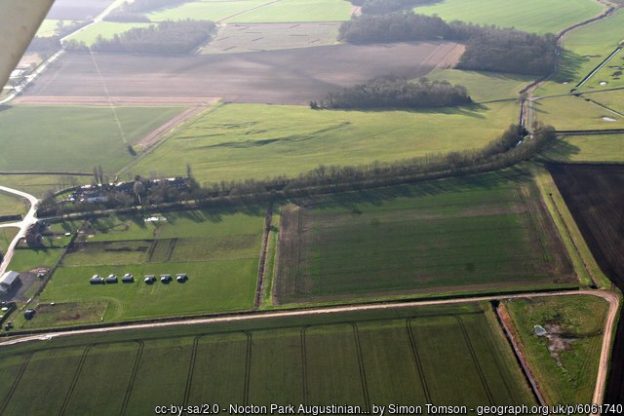It has been a while since I turned up anything new on petty treason, but today I came across a rather interesting case in a Lincolnshire gaol delivery roll from a session in September 1416. This time, it’s not about fatal goings-on between husbands and wives, but the ‘all boys together; world of the medieval priory.
The entry on the roll indicated that John Waldyng of Nocton Park, Lincs, (a house of Augustinian canons),formerly of Markby in Lincs, canon, had been arrested for having hired Richard Kyngton of Crouland, Lincs, yeoman and Peter Appulby of Nocton Park, canon, feloniously to kill and murder Robert Frisby, formerly prior of Nocton Park. In accordance with his plan, they came to Nocton Park one Sunday night, with a stave and a ‘handspathe’ and there feloniously killed and murdered Frisby.
John Waldyng had been indicted before one of the Lincolnshire coroners {Thomas Harleston, of Kesteven). Further details, which presumably came from the coroner’s proceedings, include the story that Robert Frisby was walking in the cloisters of the priory, at twilight, having prayers said before him, and was attacked from behind, hit in the head with knobbly clubs, and a small iron-shod mattock, ‘breaking his brain’ (and killing him).
There was more – after the killing, John hid Frisby’s body in a corner of the chapter house, and that night took it to a ditch in the woods of the priory. He buried the body, but not before taking Frisby’s purse, with money and some other goods (including his keys). The next day at dawn, John broke into the prior’s room(s) (cameram & studium) within the dormitory of the priory, and took further items – gold, jewels and chattels to value 3s 4d. On a previous occasion, he had taken other goods of the priory, including ‘a book called iornall’ (an ecclesiastical book, rather than the secret diary of Robert Frisby, I am afraid) and weapons and fighting gear – worth 13s 4d.
John made a successful claim to benefit of clergy. In his case, this was fairly uncontroversial – he was a canon. This success meant that he was not going to face execution for his offences. Nevertheless, the (lay) jury gave a verdict, finding him guilty. John was committed to the ecclesiastical authorities for safe custody.
So what?
Well, when I saw Frisby being described as ‘prior’, I was hoping that I had found a straightforward example of ‘killing one’s religious superior’ as mentioned in the Statute of Treasons 1351/2, which would show how the designation of that offence as ‘sort of treason’ played against the fact that benefit of clergy would be likely to be claimed in all such cases. The likelihood is that benefit of clergy would have prevailed in such a case, but I have not yet found one.
This case is not quite so straightforward an example as I had thought, though, because Robert Frisby was not actually John’s prior at the time of the killing. He had, apparently, resigned in 1400, and there was another prior at this time. We might debate whether the faith and obedience owed to a prior ever went away, but I don’t suppose that this had been sorted out. There are certain aspects of the way in which the accusation seems to have been made which suggest some uncertainty as to the classification of this offence. It is stated to have been not just a felony but a treason – the key word proditorie comes in more than once. There was an insistence on calling Frisby the master of John, and John his servant, as well as talking about Frisby being (former) prior. This would cover two of the three species of ‘petty treason’. Of course, John may really have been Frisby’s actual servant, though I would imagine that, since he is called ‘canon’, there would not have been any sort of contract of employment of the sort which would have existed between a ‘normal’ master and servant.
So – not the clear cut example I had hoped, but still an interesting insight into ideas about the ecclesiastical species of petty treason. There was some appetite for labelling such a homicide with treason-words, even though it was probably always clear that John would not be facing any sort of execution, let alone the ignominy and added pain of the petty traitor’s death. I am also rather taken with the almost martyrdom-story-like elements of the narrative of the killing of a man walking around in prayer, in the twilight stillness of the priory, struck down by cowardly brutality, from behind.
GS
17/5/2022
Image: not terribly evocative, but this is where it all happened … site of Nocton Park priory.
